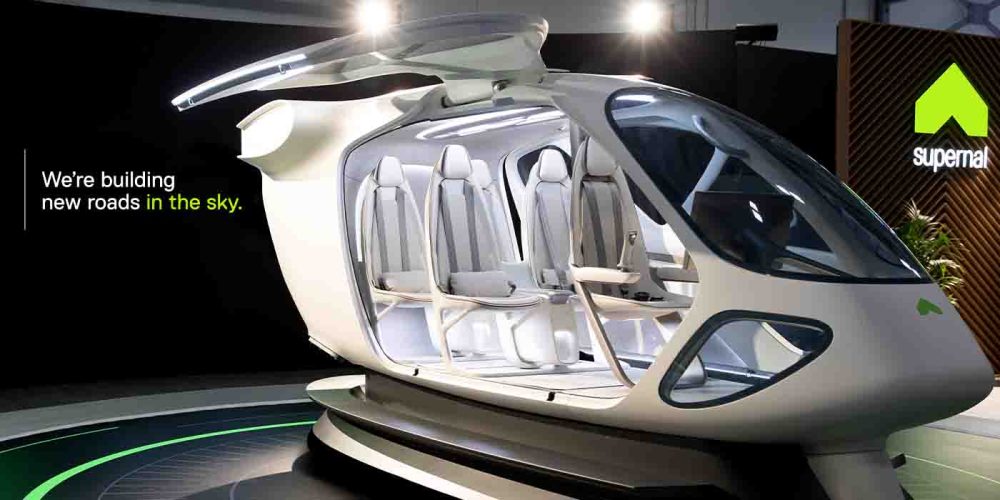
Hyundai Motor Group and Rolls-Royce Holdings have announced the mutual signing of a Memorandum of Understanding to work together to integrate all-electric propulsion into the Advanced Air Mobility (AAM) market. The parties look to combine Rolls-Royce’s expertise in aviation with Hyundai’s BEV and hydrogen fuel cell technology to develop and certify zero-emission vehicles for urban and regional air travel.
Hyundai Motor Group is already a household name in many senses, and it continues to grow thanks to its embrace of EV technologies and investments in tons of other forms of sustainability. Across its Hyundai, Kia, Genesis and IONIQ marques, the group is all-in on electrification.
Furthermore, its investments in hydrogen and solid-state batteries, while holding contests for younger generations to fuel future innovation all continue to promote sustainability around the globe. Soon, Hyundai Motor Group will add clean aviation to its repertoire, with some help from Rolls-Royce.
Not to be confused with Rolls-Royce Motor Cars Ltd., Rolls-Royce Holdings has a decorated history in aviation and currently serves customers comprised of more than 400 airlines and leasees in over 150 different countries. The company also caters to 160 armed forces and navies.
We’ve covered Rolls-Royce’s aviation accomplishments in the past, when its all-electric plane, the Spirit of Innovation, flew at a speed of 387 mph and was proclaimed “the fastest electric vehicle in the world.”
Now, Rolls-Royce looks to slow its air travel down a bit but maintain the sustainability factor with the help of Hyundai Motor Group.

Hyundai and Rolls-Royce sign MOU with five strategic aims
Hyundai Motor Group shared news of the new Memorandum of Understanding (MOU) with Rolls-Royce in a press release today. The news follows a release from the same event showcasing an eVTOL cabin concept from Hyundai brand Supernal. Representatives from Hyundai Group and Rolls-Royce Holdings posed in front of the eVTOL after signing the MOU (see above).
According to the release, the MOU with Rolls-Royce consists of five strategic aims to develop and promote sustainable air travel:
- Collaborate on the technology development and requirements of power and propulsion systems for Hyundai’s Advanced Air Mobility Division
- Collaborate on the industrialization of Rolls-Royce power and propulsion systems for the Advanced Air Mobility market
- Develop electric propulsion systems based upon hydrogen fuel cells as an energy source for Hyundai’s RAM (regional air mobility) platforms
- Collaborate to bring a joint fuel-cell electric propulsion system to the wider AAM market.
- Deliver a joint fuel-cell electric aircraft demonstration by 2025
As you can tell, there is a keener focus on hydrogen fuel cell technology under this MOU. This strategy makes sense given the light weight and superior range HFCs can provide when paired with electric propulsion. Hyundai also states the technology provides better scalability for quiet, reliable aviation. Hyundai Motor Group president Jaiwon Shin was present at the MOU signing and spoke:
We are pleased to partner with Rolls-Royce to draw upon their aviation and certification expertise to accelerate the development of hydrogen fuel-cell propulsion systems. Hyundai has successfully delivered hydrogen fuel cell systems to the global automotive market and is now exploring the feasibility of electric and hydrogen propulsion technologies for aerospace integration. We believe this to be the key technology to support the global aviation industry’s goal to fly net zero carbon by 2050.
Together, Hyundai and Rolls-Royce join a large and growing number of eVTOL developers looking to bring scalable, zero-emission technology to air mobility. Whether its all-electric, hydrogen fuel cell, or both, we as passengers may someday soon benefit from the clean and quiet air transportation they can provide.
Subscribe to Electrek on YouTube for exclusive videos and subscribe to the podcast.
Author: Scooter Doll
Source: Electrek



